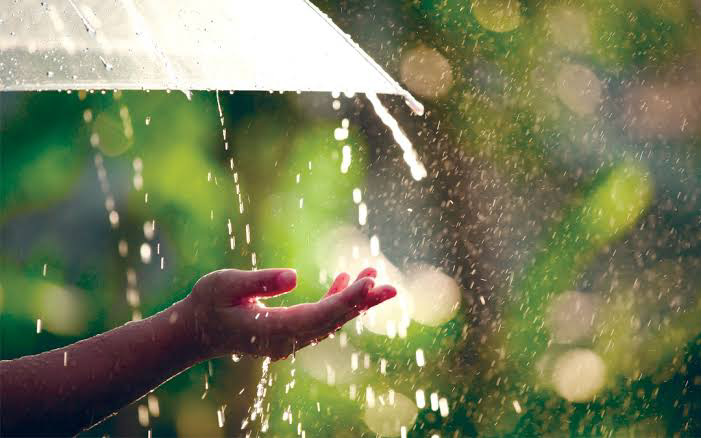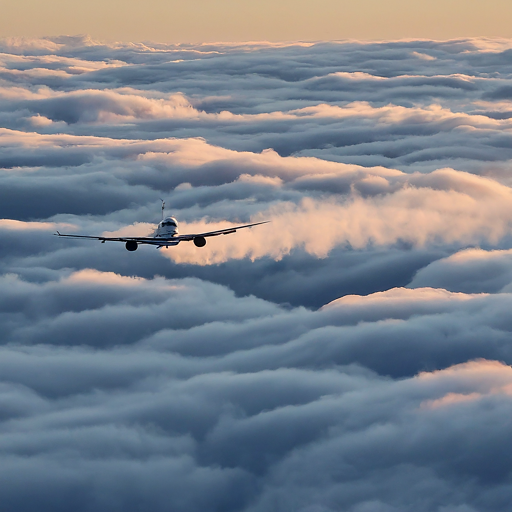Rain. It seems so simple, yet this everyday occurrence holds a world of wonder. From the way it smells to where it falls on other planets, rain is full of surprises. So, grab your umbrella (or raincoat, if you prefer) and let's delve into 20 amazing facts about this gift from the skies!
1. Raindrops Aren't Raindrops
They might look like perfect teardrops falling from the sky, but raindrops are actually more like flattened spheres. As they fall, air resistance squishes them out a bit, giving them a hamburger bun shape!
2. The Driest Place Isn't a Desert
While deserts receive very little rain, the title for driest place on Earth goes to... Antarctica! Covered in snow and ice, this continent technically receives only about 2 inches of precipitation (rain or snow) each year.
3. Rain Has a Unique Scent
Ever notice that fresh, earthy smell after a downpour? That's thanks to a special oil called petrichor released by plants in the soil. The drier the period before rain, the stronger the scent!
4. Not All Rain is Created Equal
Raindrops come in all shapes and sizes. A drizzle features tiny drops less than 0.02 inches wide, while a downpour unleashes giants over 0.2 inches in diameter. Raindrops can even travel at speeds exceeding 20 miles per hour!
5. Rainforests Don't Get the Most Rain
You might think rainforests, with their lush greenery, would be the rainiest places on Earth. But the title actually goes to Mawsynram, India, which receives an average of 467 inches of rain annually! That's over 38 feet of water!
6. Rain Creates Music
Raindrops falling on different surfaces create a symphony of sounds. The pitter-patter on an umbrella is quite different from the drumming on a rooftop.
7. Rainforests Need Fire
Forest fires, though destructive, can actually play a role in healthy rainforests. The ash from fires helps replenish nutrients in the soil, promoting plant growth which in turn increases rainfall.
8. Rain Can Be Deadly
While rain is essential for life, heavy downpours can lead to flash floods and landslides, causing devastation.
9. Rain Triggers Strange Animal Behavior
From earthworms emerging after rain to frogs raining from the sky (due to those waterspouts again!), rain can cause some unusual animal behavior.
10. Rain Makes You Feel Happy
The sound of rain can be incredibly calming and relaxing. Studies have shown that listening to rainfall can reduce stress and anxiety, promoting feelings of well-being.
11. Rain is a Powerful Sculptor
Over millions of years, rain has carved canyons, sculpted mountains, and shaped the very landscapes we see today.
12. Rain is Unequally Distributed
Some places receive very little rain, while others are drenched. This uneven distribution can lead to water scarcity in some regions.
13. Rain Affects Climate
The amount and type of rain falling in a region can significantly impact the local climate. For example, heavy rainfall can lead to cooler temperatures, while less rain can contribute to drought and heat waves.
14. We Can "Make" Rain
Cloud seeding is a technique where airplanes release chemicals into clouds to encourage rain formation. This method is used to increase precipitation in areas experiencing drought.
15. Rain is Part of a Water Cycle
Rain is just one part of a vast water cycle that constantly moves water around the planet. This cycle includes evaporation, condensation, precipitation, and infiltration.
16. Rainbows Form Thanks to Rain
Rainbows are a beautiful optical phenomenon caused by the sun's light refracting and reflecting through water droplets in the air.
17. Acid Rain is a Threat
When pollutants like sulfur dioxide and nitrogen oxides mix with water vapor in the atmosphere, they form acid rain. This can damage plants, buildings, and aquatic ecosystems.
18. Rain Barrels Collect Rainwater
Rain barrels are a simple way to collect rainwater for later use. This can be used to water plants, wash your car, or even flush toilets, reducing reliance on municipal water supplies.
19. Rainforests Breathe for Us
Rainforests play a crucial role in regulating the Earth's climate by absorbing carbon dioxide from the atmosphere. This helps to mitigate climate change.
20. The Future of Rain is Uncertain
Climate change is expected to alter global rain patterns, leading to more frequent and intense storms in some regions and prolonged droughts in others.
So next time you see a ran fall, always say thank you to God and nature for making life habitable.







No comments:
Post a Comment